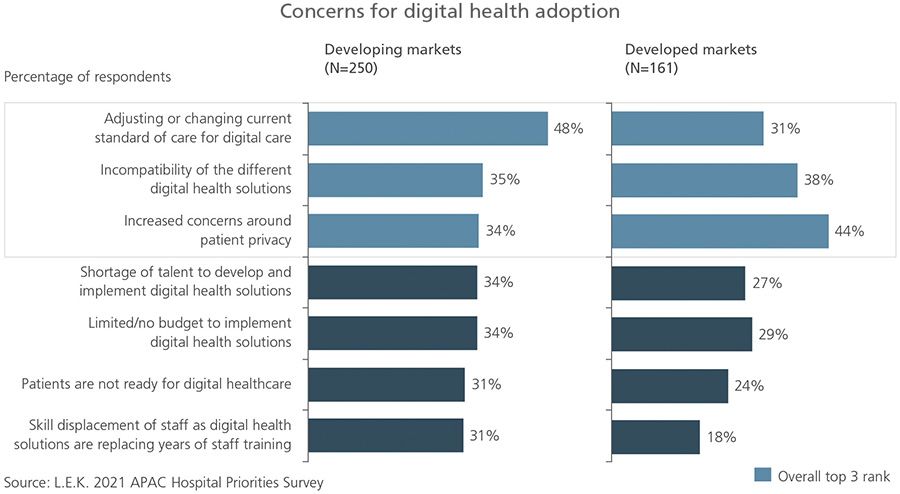Healthtech startup Zi.Care Announces Early Stage Funding
So far the company has served 76 hospitals, consisting of 70 national hospitals that handle Covid-19 as well as 6 commercial contracts
Startups healthtech Hospital digitization provider Zi.Care announced the acquisition of initial funding of $500 thousand (over 7,2 billion Rupiah) from a number of investors. They are Southeast Asia Venture Capital, Iterative VC, TMI through Telkomsel Corporate Accelerator Program (TINC), and Choco-Up.
This fresh fund will be used by the company for business expansion, increasing the number of consumers for hospital and clinic health facilities, increasing the deepening of Electronic Medical Records (EMR). Then, upgrade technology to improve business, efficiency of health facilities, and increase cooperation with corporate partners, such as Bank BNI, Bank Syariah Indonesia, Bank Mandiri, Bank OCBC, and Telkomsel.
In an official statement delivered by the company today (25/8), the company also appointed a number of professionals to join the advisory board. Among them, JS Chong (Chairman & CEO of Stratez Ventures), Wiji Rahayu (former banker and founder of PE Sentra Investa Prima), and Budi Wiweko (Vice Chair of the Indonesia Medical Education and Research Institute/IMERI).
Co-Founder & CEO Zi. Care Jessy Abdurrahman explained that since the company was founded four years ago, they have ambitions to help with basic problems in the Indonesian health facility system through digitalization. Considering that currently medical resources in Indonesia are under considerable pressure, which indirectly causes problems in the entire health care ecosystem.
Take for example, currently the time required by patients to get services at the hospital, the average time spent for at least 2 hours. In terms of efficiency and convenience, these issues are important for the health system to fix in Indonesia.
"In addition, several related problems, long waiting times, complicated administrative processes to the low level of accuracy in medical records, reflect that there are problems with health access in the country," he explained.
Therefore, Zi.Care offers a solution through Electronic Medical Records (EMR) and Electronic Health Records (EHR) based on cloud computing to digitize all health information systems, including hospital administration, clinical support, and claims management.
"Also currently Zi.Care is gradually developing a patient personal health record application (Patient Personal Health Records) and health passport (Health Passport).”
He continued, the two products being developed could later facilitate the patient-focused health development process. Also, improve the administrative system in the hospital, improve the use and experience of digital insurance claims.
Zi.Care's Chief Strategy Officer Jodi P. Susanto added, the Covid-19 pandemic has taught us that there is an increased need for digitizing health facilities in the process of health information systems.
It actively participates in attracting private practitioners, telemedicine, hospitals, and clinics to benefit from better and advanced technology through Zi.Care, to take medical data to the next level, and facilitate access through the exchange of health information with various stakeholders.
“We are committed to supporting the adaptation of EMR and the digitization of healthcare facilities in Indonesia, so that patients can get better and faster services through our platform. We will always support the government so that medical personnel can reach more patients through our Sehatpedia application, which has collaborated with the Ministry of Health," said Susanto.
Zi Care applies two business models, namely B2B and B2B2C to support all segments regardless of level. For example, greater flexibility of offering in pricing options, which is in line with Zi.Care's ultimate goal, which is to make services accessible to the general public.
In interview with DailySocial.id previously, in the B2B realm, Zi.Care implements a subscription business model for the Zi.Care SaaS platform with a minimum period of 3 years of use. In this package, the company will handle the overall Health Service Management and Information System in the hospital, as well as the maintenance of the system.
It is claimed, the company has served 76 hospitals, consisting of 70 national hospitals that handle Covid-19 as well as 6 commercial contracts.
Adoption healthtech overall
Since the pandemic, hospitals are still in crisis response mode. The scale and contagion of Covid-19 has caught the global hospital system off guard, and APAC is no exception. Emergency response and liquidity are prioritized over long-term development strategies, and remain high on the agenda – despite effective containment in key APAC markets.
In the published report LEK Consulting and GRG Health 2021, conveyed by restricting patient mobility and risk aversion that accompanies hospitals, has increased the acceptance of digital health for all stakeholders.
“This has led to accelerated adoption of solutions such as teleconsultation, image analysis with the help of artificial intelligence (AI), and remote patient monitoring. Patients are more receptive to digital alternatives, and governments are seeing the benefits of greater adoption. More and more, regulations are being relaxed and reimbursements are being formalized for digital health solutions,” explained LEK Consulting Singapore partner Fabio La Mola.
More Coverage:

As a result, most hospitals across APAC are exploring and piloting digital healthcare solutions – if they are not already using them. In Singapore, this figure stands at 94%, while Australia and China have adoption rates of 84% and 89%, respectively. Japan lags behind by more than 60%.
Much of technology adoption is a means of maintaining quality diagnosis and treatment – even at distance and under pressure from high volumes. There are many examples to take, in China for example, medical imaging company Infervision using AI imaging to identify potential Covid-19 patients.
Hospitals in Indonesia and India are using robotic assistants to deliver food and medicine – minimizing risks to healthcare workers, while remote patient monitoring tools from global predictive care company Bifourmis allow practitioners to track vital signs among people awaiting test results. .
Beyond patient care, hospitals are using technology to minimize errors, and find new revenue streams to address the downsides of reducing elective surgeries and consultations. Many also use digital channels to engage with suppliers – a win-win in which hospitals can easily order drugs and equipment while pharmaceutical companies can expand their distribution.
Sign up for our
newsletter
